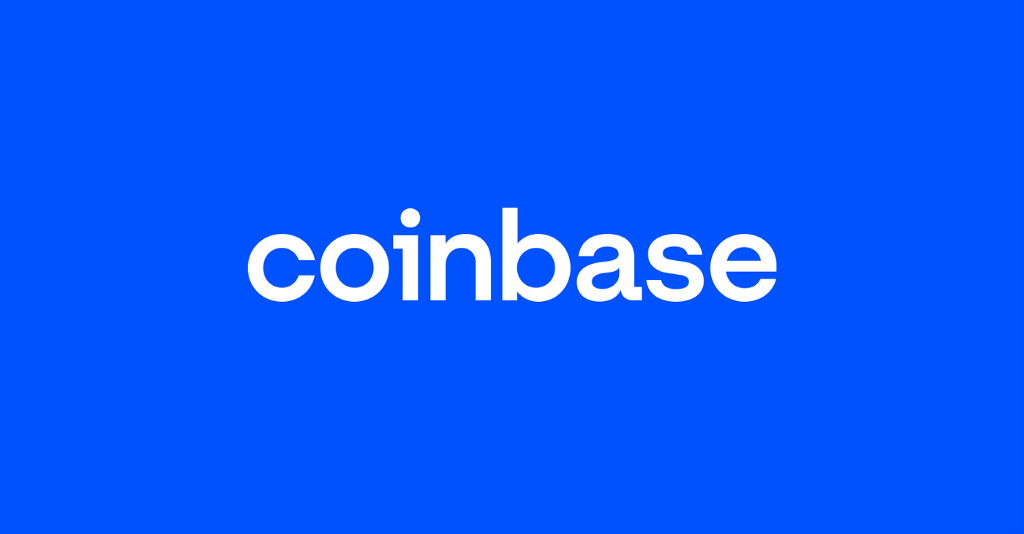Sanctions Should Target Bad Actors. Not Technology.
Tl;dr: Coinbase is funding a lawsuit introduced by six folks difficult the US Treasury Department’s sanctions of the Tornado Cash sensible contracts and asking the Court to take away them from the U.S. sanctions listing. The lawsuit explains that OFAC exceeded its authority from Congress and the President in sanctioning open supply expertise, reasonably than sanctioning the unhealthy actors who used it or the property of these unhealthy actors.

By Paul Growl, Chief Legal Officer
Today, Brian Armstrong shared why Coinbase is funding and supporting a problem by six people (together with two Coinbase workers) in opposition to the Treasury Department’s novel sanctions of open supply software program related to Tornado Cash. I wished to take a second to share just a little extra element about this authorized motion. At its core, this authorized problem is about how the Treasury Department exceeded the authority Congress and the President granted it in sanctioning open supply expertise, reasonably than sanctioning the unhealthy actors who used it or the property of these unhealthy actors. No one desires criminals to make use of crypto protocols, however blocking the expertise solely (which is what this sanction basically does) shouldn’t be what the folks’s elected representatives licensed — particularly when there are efficient routes to extra narrowly goal unhealthy actors. These sanctions characterize a big unauthorized growth of OFAC’s authority, they usually have harmed harmless folks looking for to legitimately defend their privateness and safety utilizing this expertise, because the tales of those six people make clear.
Tornado Cash Sanctions
On August 8, 2022, Treasury’s Office of Foreign Assets Control (“OFAC”) sanctioned Tornado Cash, an open supply software program venture that makes use of sensible contracts to permit customers to ship property privately on the Ethereum community. As a part of this motion, OFAC added to its Specially Designated Nationals and Blocked Persons List (“SDN List”) Tornado Cash’s sensible contracts, that are publicly out there, open supply instruments that anybody can entry to ship property from their non-public accounts and withdraw them to a special crypto tackle. Smart contracts are basically code that’s not managed by any particular person or group and is executed by the Ethereum community in accordance with strict guidelines that can’t be modified.
While prior OFAC sanctions in opposition to people or entities typically listed crypto addresses owned or managed by these unhealthy actors, OFAC has by no means earlier than sanctioned an open supply expertise just like the Tornado Cash sensible contracts. For instance, when OFAC sanctioned the North Korean Lazarus Group, it added eight Ethereum addresses to the sanctions listing — every have been accounts managed by the Group the place they held their property.
In this case, by including the Tornado Cash sensible contracts to its SDN List, OFAC made it unlawful for any U.S. individual to make use of this privateness protocol — banning this expertise for all.
OFAC Exceeded Its Authority From Congress and the President in Sanctioning Open Source Technology
Federal companies, just like the Treasury Department, in the end get their authority to behave from the folks’s representatives in Congress, which enacts laws defining an company’s powers. When working, federal companies should act throughout the bounds of that Congressionally outlined authority. If an company’s motion exceeds these powers, Congress has additionally licensed courts to overview that motion, with the treatment being to put aside the illegal motion. These challenges are essential to stopping govt overreach and making certain company motion stays throughout the bounds of what the folks’s representatives in Congress allowed.
Applying these ideas right here, Congress handed the International Emergency Economic Powers Act (“IEEPA”), authorizing the President to freeze the property of, and prohibit transactions with, any individual decided to be a risk to the United States, and the President delegated this energy to Treasury to problem sanctions. However, this delegated energy solely authorizes OFAC to focus on individuals or their property.*
We are supporting the authorized problem to the Tornado Cash motion as a result of the Tornado Cash sensible contracts are neither individual nor property. This means OFAC exceeded its authority from Congress when it lately added these to the SDN List — successfully banning the expertise for all U.S. individuals. The final result sought by this problem is to have OFAC take away these crypto addresses related to software program from its SDN List, in order that U.S. individuals can as soon as once more use this privateness expertise.
First, on the danger of stating the apparent, Tornado Cash open supply sensible contracts usually are not individuals. They are strains of code, not people, companies, or organizations. Tornado Cash’s sensible contracts allow a consumer to deposit tokens from one crypto tackle and later withdraw those self same tokens to a special crypto tackle, and are executed mechanically with out human intervention. They are a privateness software, a expertise, that’s neither human nor an entity.
Second, and for related causes, the Tornado Cash sensible contracts are additionally not property. The strange which means of “property” is one thing owned, a possession, or a tangible or intangible merchandise that somebody has authorized title to own.** The sensible contracts are non-proprietary, open supply code not managed by any particular person or group. Instead, they’re merely packages that run on the Ethereum community in accordance with preset guidelines that can’t be modified or altered. In the case of the Tornado Cash sensible contracts, anybody on the earth can ship ETH to those contracts, which is able to then run in accordance with preset directions that neither the unique builders of the code nor these sending or receiving funds can change. When a person makes use of these sensible contracts, they by no means flip over management of their property to a different particular person or group and property usually are not commingled or blended; they merely use the privateness code to ship after which withdraw their property.
These Novel Sanctions Harmed Innocent Individuals and Threaten the Critical Development of Crypto Privacy Protocols
Unlike in conventional finance, ETH transactions are transparently recorded on the Ethereum blockchain. That means anybody with a pc can view the transaction historical past and balances related to a specific consumer’s tackle. So, when customers ship ETH from their tackle to a recipient’s tackle, anybody can use a public blockchain explorer to search for that sender’s prior transactions, find out about their spending habits, and examine their account steadiness.
While this transparency is vital for auditability and verification, it poses privateness challenges for Ethereum customers who moderately wish to defend their private monetary info. For the identical causes that you just’d be reluctant to publicly share all of your non-public financial institution statements that element your spending historical past, an individual who receives their wage in ETH doesn’t essentially need everybody realizing how a lot they make or how they spend their funds.
The Tornado Cash privateness protocol allowed customers to regain that privateness. Using sensible contracts, a consumer may deposit property from one crypto tackle and withdraw crypto property to a totally totally different tackle, severing the in any other case clear connection to their prior transactions. Once withdrawn, the consumer may switch these property with out concern of exposing their total monetary historical past or web value to 3rd celebration strangers. The plaintiffs on this lawsuit characterize a cross part of crypto customers and builders who used Tornado Cash to guard their privateness and safety for varied professional causes — from wanting to securely donate to Ukraine battle reduction with out danger of Russian retaliation, to concealing wage deposits that will present how a lot they earn, to stopping malicious actors from focusing on their properties to attempt to steal giant portions of crypto property held of their wallets. By creating new, non-public crypto addresses when sending funds to strangers, these plaintiffs may keep away from disclosing their private accounts, which they use to carry their property and ship private transactions.
In this fashion, crypto privateness protocols usually are not solely essential to the event of the crypto ecosystem, they’re an vital software to guard people in opposition to hackers and thieves who could in any other case goal homeowners of crypto addresses that maintain vital property. The sanctions in opposition to Tornado Cash haven’t solely blocked this open supply expertise to U.S. individuals, however cryptographers and builders have additionally been scared away from contributing to different vital privateness initiatives, fearful that their code shall be sanctioned within the future.
Coinbase is Committed to Combating Illicit Finance and Supports Reasonable Regulations and Action Against Bad Actors
Coinbase is totally dedicated to combating illicit exercise and sanctions evasion. We commonly accomplice with and advise legislation enforcement and regulators on a variety of cryptocurrency matters, help essential legislation enforcement investigations, and reply to many 1000’s of subpoenas a yr. We totally help OFAC’s overarching nationwide safety goals and vastly admire the vital work it does to sanction unhealthy actors and block the property these actors management. However, within the Tornado Cash motion, OFAC didn’t goal the unhealthy actors or the property managed by these actors; as a substitute, it took the unprecedented step of sanctioning open supply expertise — a software legitimately utilized by many harmless folks even when additionally by some unhealthy actors. We don’t imagine Congress licensed this, and for good purpose. After all, we don’t shut down e mail or the web code as a result of amongst its many customers are some criminals. That is why we’re funding and supporting this problem by six crypto customers looking for to regain essential instruments wanted to guard their privateness and safety.
*50 U.S.C. § 1702(a)(1)(B).
**American Heritage Dictionary of the English Language 1412.
![]()
Sanctions Should Target Bad Actors. Not Technology. was initially revealed in The Coinbase Blog on Medium, the place persons are persevering with the dialog by highlighting and responding to this story.



